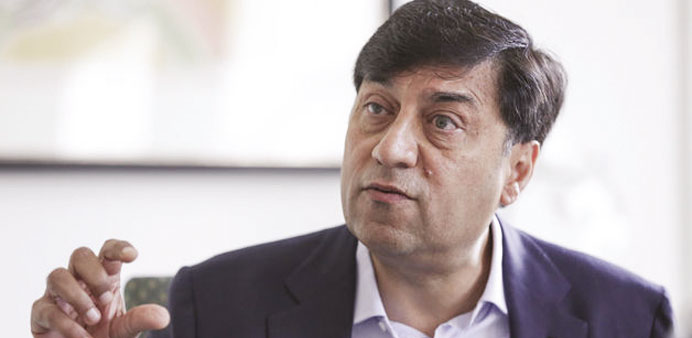Bloomberg/London
Reckitt Benckiser Group was best-positioned to maximise the return from Merck & Co’s consumer-health unit, Chief Executive Officer Rakesh Kapoor said, six weeks after losing out to Bayer in bidding for the Coppertone sunscreen maker.
“Had we got it, we were probably the best placed to get the best value out of it,” Kapoor, 55, said in an interview at Bloomberg’s London headquarters. “Would I have loved to have done it? Yes. But am I going to do this on emotional grounds?
No. Saying no is a very important attribute for a good CEO. If you keep saying yes, you will have a very short life.”
Reckitt Benckiser dropped out of the contest for Merck’s over-the counter brands on April 30, allowing Bayer to gain a business its finance chief called a “crown jewel” for $14.2bn one week later. At the time, Kapoor said in a statement that the company had “strict return metrics” that it wouldn’t break.
Faced with slowing growth in some emerging markets and prolonged weakness in Europe and North America, Kapoor is pushing further into consumer healthcare through acquisitions and new products, considering an exit from pharmaceuticals, and expanding into new regions such as Africa. In its home market of Britain, data suggesting an economic revival has not trickled down to brisker consumer spending, Kapoor said.
A strategic review of Reckitt Benckiser’s pharmaceutical business that started almost eight months ago now “points to a capital markets solution,” meaning a spinoff or an initial public offering, Kapoor said. He declined to say whether that was because of a lack of interest from potential buyers. The company will provide an update on the process next month.
“I don’t want to say there was no interest or little interest from buyers,” he said. “This is now a sustainable business, and that’s something I could not have said three years ago.” He declined to estimate a value for the business, which most analysts say is worth at least 1bn pounds ($1.7bn) and as much as 3bn pounds.
Revenue at Reckitt Benckiser’s pharmaceutical unit, which makes the opioid-dependency drug Suboxone, declined 11% in the latest quarter as generic versions, introduced last year, continue to grab sales.
The market share of Suboxone’s newer film variant, which has narrower profit margins than the tablet that the company discontinued last year, declined by 4 percentage points to 64%, the company said.
Emerging markets will help offset the lost sales of Suboxone. Africa represents a “vast opportunity” where the company plans to focus on boosting sales of Dettol disinfectants in Nigeria and South Africa, the CEO said.
Kapoor said he’s pushing Dettol products by educating consumers about the importance of personal hygiene.
Nigeria, Africa’s largest economy, has one of the world’s worst infant mortality rates, according to The World Bank, and the average life expectancy is52 - statistics that Kapoor said were “dreadful.”
Nigeria is also is struggling to create enough jobs, even as the International Monetary Fund estimates the economy will expand 7.1% this year.

